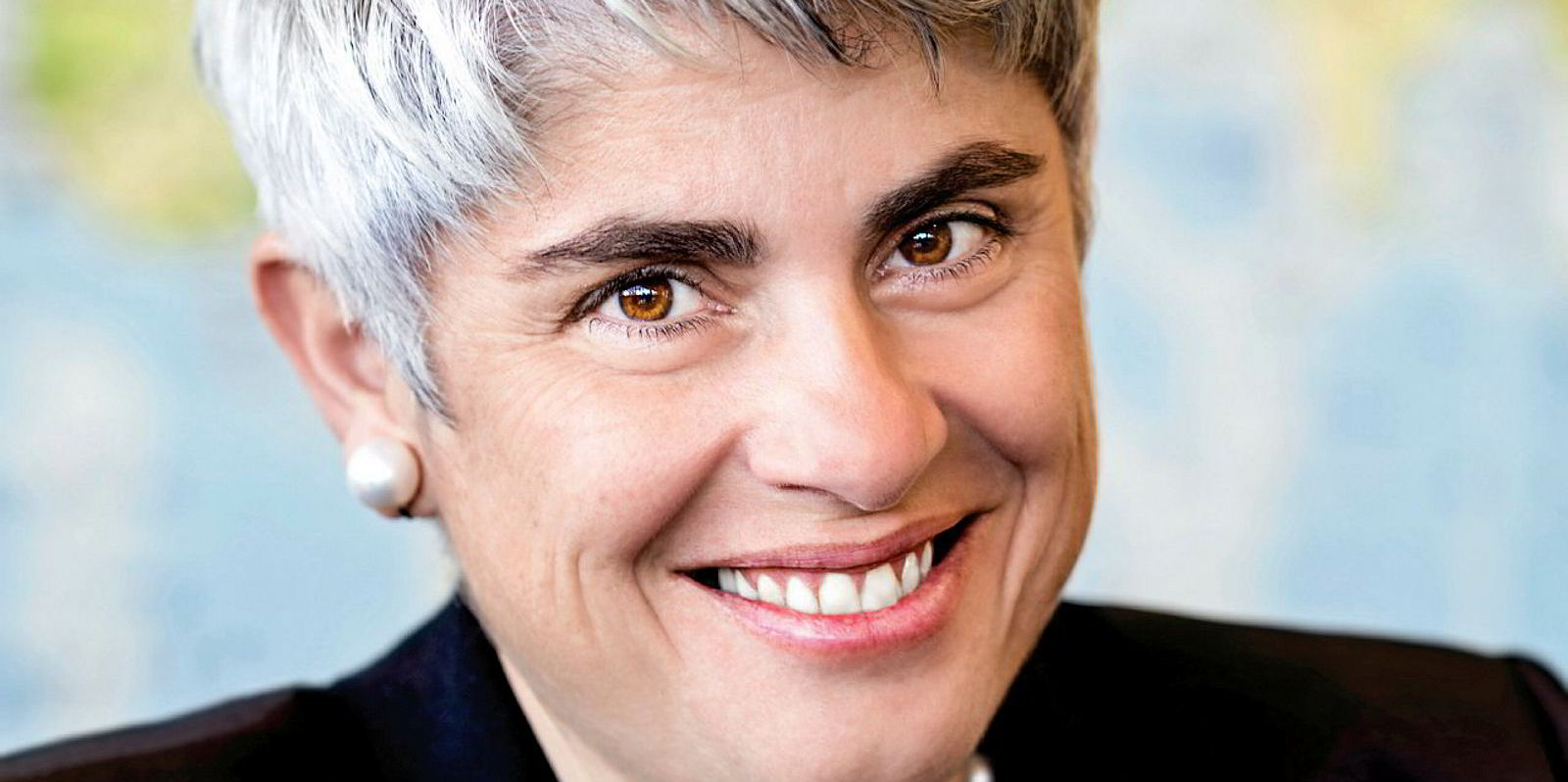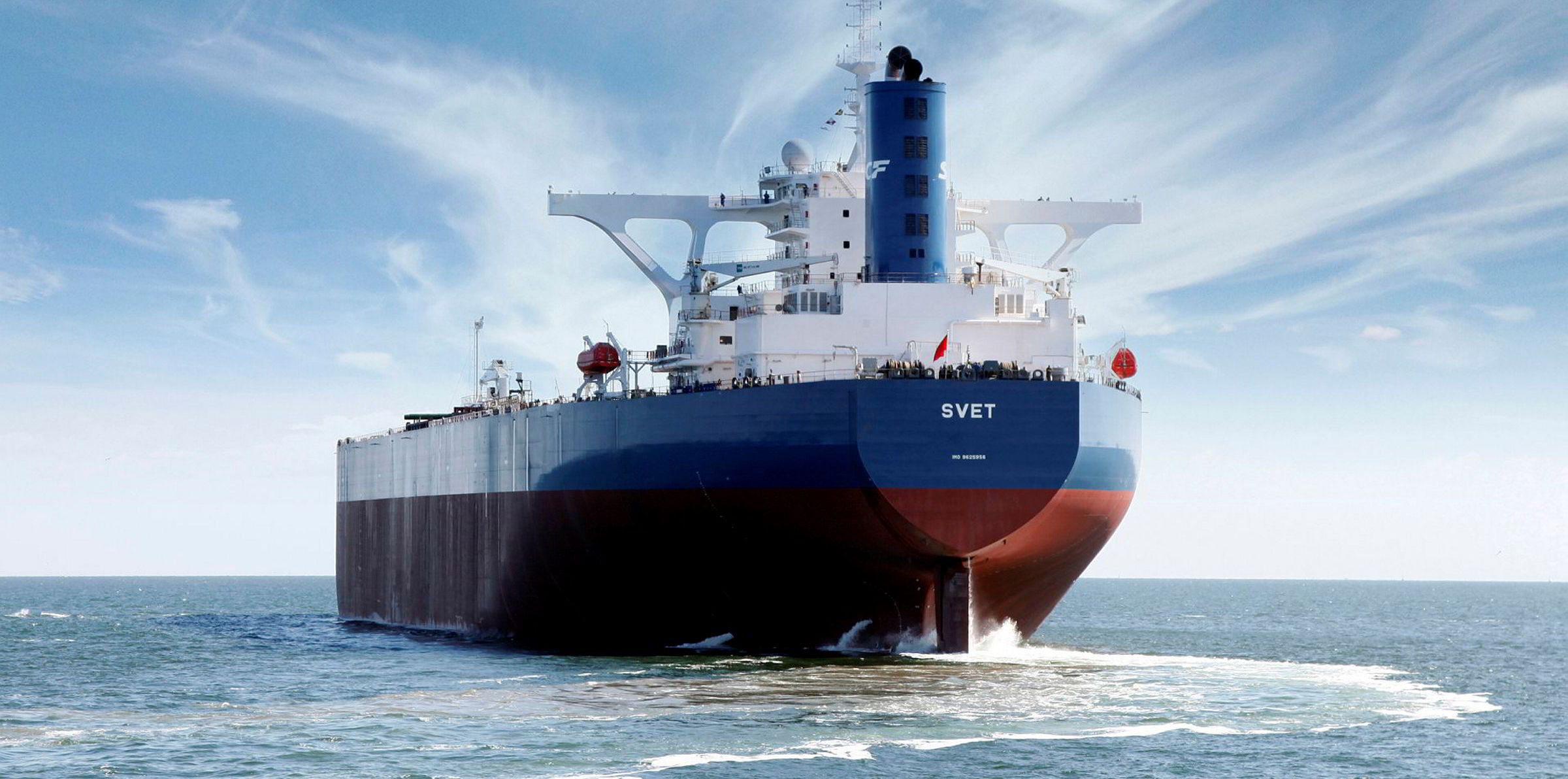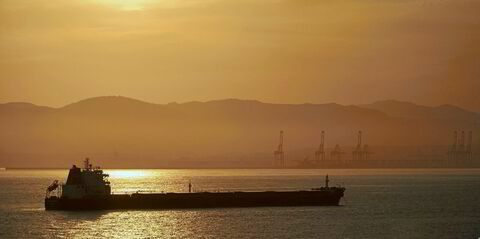Euronav has become the latest owner to reveal huge earnings after what it called "an extraordinary series of events" in the first quarter.
Buoyed by the "disconnect" between slumping oil demand during the coronavirus pandemic and increased Opec+ crude production, the Belgian tanker owner banked a staggering $226m in net profit to 31 March, up 1,050% from the $19.5m achieved in the same period of 2019.
The average spot rate of its VLCCs operating in the Tankers International (TI) pool jumped to $72,750 per day, from $35,195 a year ago.
The spot suezmaxes made a return of $59,250 per day, against $27,380 in 2019.
This lifted revenue to $417m, compared to $233m the year before.
"The past few months have seen a number of disruptive and seismic events simultaneously impacting on the wider crude and tanker markets," chief executive Hugo de Stoop said.
"Most importantly our primary focus has been on the well-being, protection and safety of our staff, seafarers and their families in the face of the threat from Covid-19. So far, the gyrations in the crude market have largely had positive implications for the crude tanker market."
So far in the second quarter of 2020, the spot VLCC fleet has earned about $95,000 per day, with 71% of the available days fixed.
Spot suezmaxes stand at about $65,400 per day, with 57% of days booked.
No disappointment here
Fearnley Securities said the result did not disappoint, with earnings per share of $1.01 being well clear of its estimate of $0.89.
Euronav's VLCC rates were above those of rivals and it is the best capitalised tanker owner, it believes.
"We also note that Euronav has now covered 19% of remaining 2020 days, hinting towards four to five VLCC charter deals and a similar number of suezmaxes," Fearnely added.
"With our expectations of a significant softer market in the second half, this at least creates some protection."
As for the stock, it said: "If you assume tanker stocks will trade with a discount to steel in a downcycle (most did back in 2018), they might not be as much of a screaming buy anymore."
Dividend maintained
The New York and Euronext-listed shipowner is sticking to its increased dividend payout policy "in view of the strong quarterly results, the strength of our balance sheet, our overall liquidity position and the robust outlook of the second quarter."
The company will hand over $0.81 per share, representing 80% of the profit.
No ULCC cargo write-down
Euronav had signalled earlier this year that it had expected to write down the value of IMO 2020-compliant low sulphur fuel oil and marine gasoil stored on its 442,000-dwt ULCC Oceania (built 2003) in Malaysia.
A total of 420,000 tonnes was bought last year, but the price of these bunkers has fallen significantly in recent months, meaning the 220,000 tonnes of oil left on board has decreased in value by $56m compared to its book value.
The company said it would not be writing down this amount, however, due to the "robust freight market" in the second quarter and "possibly the rest of 2020, which will offset the higher weighted average consumption costs of the bunker oil consumed from that inventory."
"In view of the significant drop in oil and fuel oil price in Q1, the company stopped using its stored compliant fuel and purchased what was needed on the open market," it added.
Bonds bought back
The pandemic pushed Euronav's bond to record low levels in the initial stock market reaction to the outbreak, during which time Euronav bought $1m back at face value before the price quickly recovered to a premium.
At the end of March 2020, the company had liquidity of $1.05bn, comprising $312m in cash and $734m in undrawn credit facilities.
Crew conundrum
The lockdown prevented the shipowner from making regular crew rotations, but it hopes the situation will normalise soon.
"We are working hard to allow our crew onboard to return safely to their homes, as well as allowing new crew to come onboard safely," Euronav said.
"Whilst a number of shore employees have seen their workload significantly decreased as a result of not being able to access the office, Euronav has decided not to put any of its employees under temporary or permanent unemployment benefits as we believe that every single employee at Euronav plays a critical role in our operations in the short and the long term."
Volatility ahead
Looking ahead, Euronav expects ton-mile development for large crude tankers to remain under pressure in the short term and into next year, specifically in terms of US crude exports.
"Demand for tanker shipping is currently high and management believes [this] will continue, albeit likely to remain volatile, throughout 2020," the tanker said.
The slow pace of economic re-opening and the low oil price means owners will have the chance to convert these "market dynamics" into longer-term charters, the company added.
And the company said: "The extraordinary sequence of events over the past few months should not overshadow some of the supportive trends that have built up in the large crude tanker market over previous quarters."
These include tanker scrapping and the low orderbook.
Any sustained freight rate weakness is likely to trigger more demolition, the company believes.






